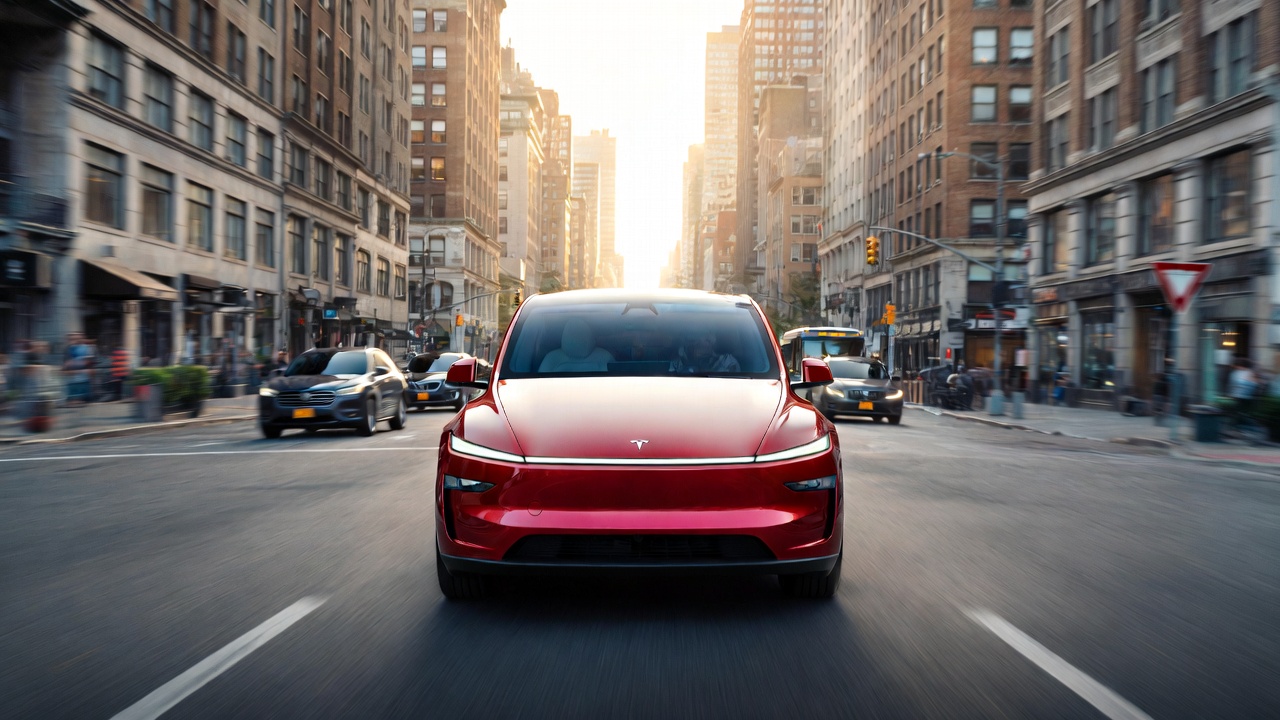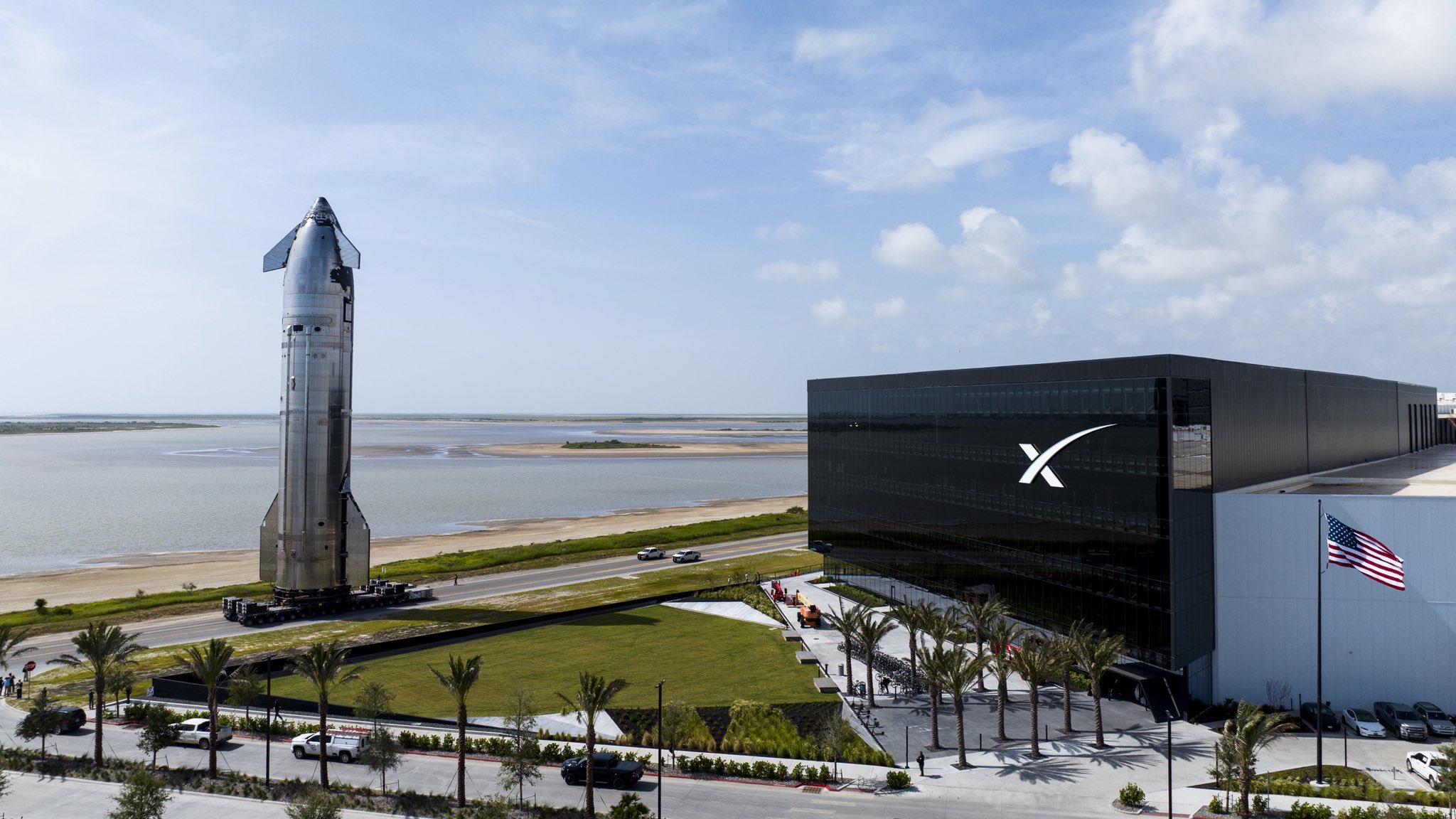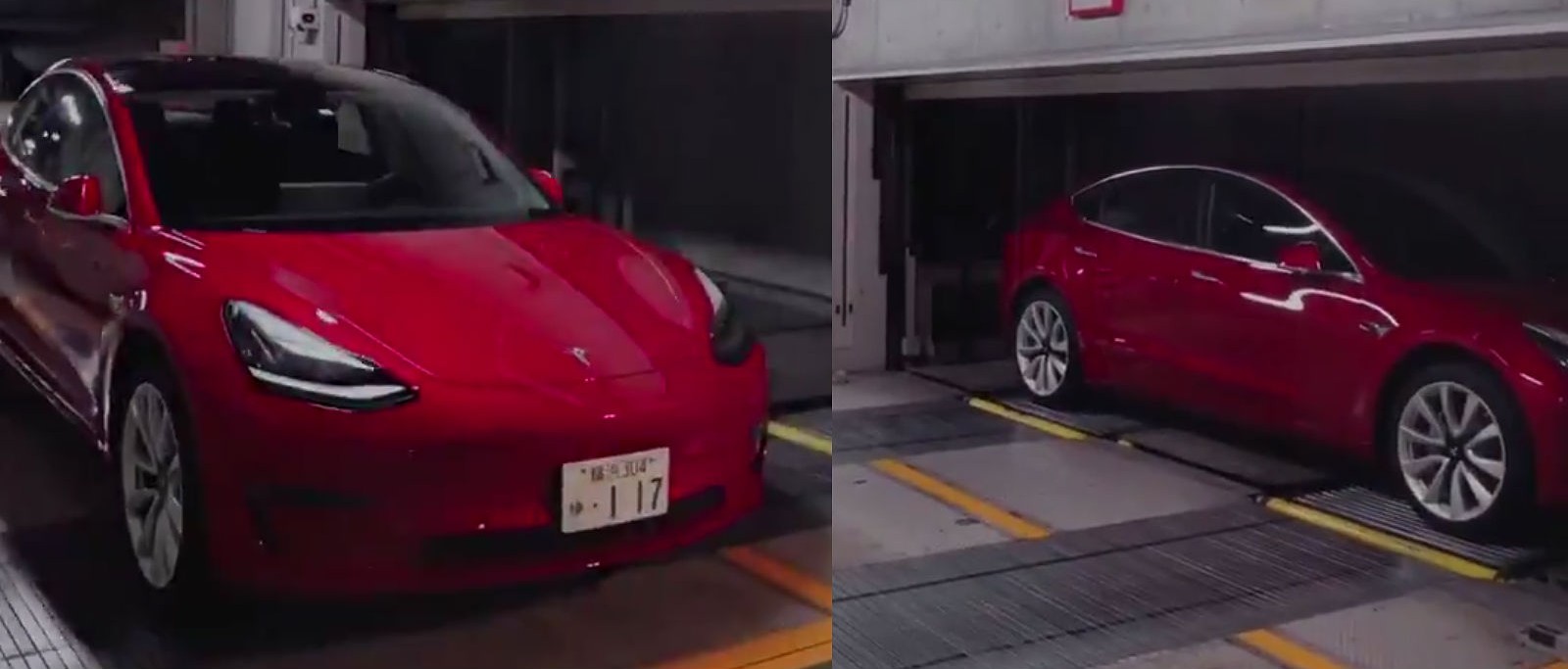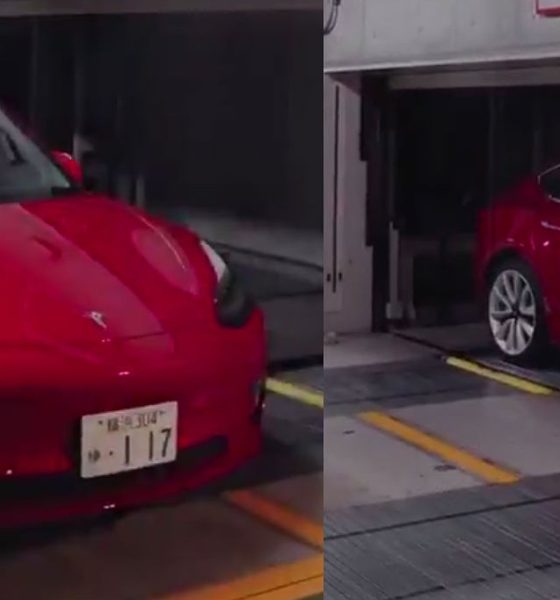Tesla is yet to start pushing the Model 3 to right-hand drive markets like Japan and Britain, but it is becoming more and more evident that the vehicle is specifically designed to work well on these countries. A recent video from Tesla Japan, for example, highlighted why the Model 3 is an incredibly compelling vehicle, even in cities and areas where parking spaces are notoriously scarce.
During Elon Musk’s recent appearance at the Tesla owner-enthusiast Ryan McCaffrey’s Ride the Lightning podcast, the CEO mentioned that the Model 3 actually fits Japan’s automated multistory parking machines. Musk’s comments were actually showcased by Tesla’s Japanese Twitter account late last month, but it went largely below the radar. In Tesla Japan’s post, the Model 3 could be seen perfectly fitting into an automated parking spot.
This all but shows that Tesla designed the Model 3 not only to be competitive in markets such as the United States, but in areas such as Japan as well. The Model 3 is not a small vehicle by any means, but it is compact enough to be a perfect fit for markets where roads are fairly small and narrow, as is the case in Britain, and countries where parking spaces are difficult to find, such as Japan. This shows some notable foresight on Tesla’s part, as the company seemingly took the international market’s requirements in mind when designing the Model 3.
It should be noted that the Model 3 will be the first Tesla that will be compatible with Japan’s multistory automatic parking machines, as the Model S and Model X were usually too large for the facilities. With this, the Model 3 would likely be an attractive vehicle even for customers who live in an area where on-street parking is incredibly scarce.
Automated multistory parking systems are a common sight in Japan, particularly in densely populated areas. Using a system of conveyors, elevators, and a multistory structure, these facilities allow hundreds of vehicles to be stored or parked in a limited space. Automatic parking systems used to employ attendants during their early days, but today, these facilities are usually operated only through computers, making them a perfect match with Tesla’s tech-centric Model 3.
The Tesla Model 3 has already landed in numerous territories, and it has already made a notable impact on countries such as the United States and Norway. While Tesla’s Model 3 VINs have already reached the 400,000 range as of late, the vehicle’s international ramp is only partly complete. RHD markets such as Japan are yet to be saturated by the electric sedan, and the greater Chinese region is yet to be immersed in a wave of Model 3 that is locally produced from Gigafactory 3.

Elon Musk
SpaceX IPO could push Elon Musk’s net worth past $1 trillion: Polymarket
The estimates were shared by the official Polymarket Money account on social media platform X.

Recent projections have outlined how a potential $1.75 trillion SpaceX IPO could generate historic returns for early investors. The projections suggest the offering would not only become the largest IPO in history but could also result in unprecedented windfalls for some of the company’s key investors.
The estimates were shared by the official Polymarket Money account on social media platform X.
As noted in a Polymarket Money analysis, Elon Musk invested $100 million into SpaceX in 2002 and currently owns approximately 42% of the company. At a $1.75 trillion valuation following SpaceX’s potential $1.75 trillion IPO, that stake would be worth roughly $735 billion.
Such a figure would dramatically expand Musk’s net worth. When combined with his holdings in Tesla Inc. and other ventures, a public debut at that level could position him as the world’s first trillionaire, depending on market conditions at the time of listing.
The Bloomberg Billionaires Index currently lists Elon Musk with a net worth of $666 billion, though a notable portion of this is tied to his TSLA stock. Tesla currently holds a market cap of $1.51 trillion, and Elon Musk’s currently holds about 13% to 15% of the company’s outstanding common stock.
Founders Fund, co-founded by Peter Thiel, invested $20 million in SpaceX in 2008. Polymarket Money estimates the firm owns between 1.5% and 3% of the private space company. At a $1.75 trillion valuation, that range would translate to approximately $26.25 billion to $52.5 billion in value.
That return would represent one of the most significant venture capital outcomes in modern Silicon Valley history, with a growth of 131,150% to 262,400%.
Alphabet Inc., Google’s parent company, invested $900 million into SpaceX in 2015 and is estimated to hold between 6% and 7% of the private space firm. At the projected IPO valuation, that stake could be worth between $105 billion and $122.5 billion. That’s a growth of 11,566% to 14,455%.
Other major backers highlighted in the post include Fidelity Investments, Baillie Gifford, Valor Equity Partners, Bank of America, and Andreessen Horowitz, each potentially sitting on multibillion-dollar gains.
News
Tesla expands global FSD (Supervised) testing with Abu Dhabi trials
The program marks the emirate’s first formal testing framework for Tesla’s supervised autonomous driving technology.

Tesla has started its first Full Self-Driving (Supervised) road trials in Abu Dhabi under the oversight of the Integrated Transport Centre, also known as Abu Dhabi Mobility.
The program marks the emirate’s first formal testing framework for Tesla’s supervised autonomous driving technology.
FSD (Supervised) road trials are being conducted with the support of the Smart and Autonomous Systems Council and in coordination with the Legislation Lab at the General Secretariat of the UAE Cabinet.
Dr. Abdulla Hamad AlGhfeli, Acting Director General of the Integrated Transport Centre (Abu Dhabi Mobility), highlighted the agency’s regulatory role in overseeing the FSD (Supervised) tests in a press release.
“The supervision of the Integrated Transport Centre (Abu Dhabi Mobility) over the commencement of Tesla’s advanced autonomous driving technology tests reflects its regulatory and legislative role. These tests represent a qualitative step to evaluate the technology’s performance in a real-world operating environment and to collect the necessary data to verify its readiness before any future expansion in usage.
“Through this organized framework, and in cooperation with strategic partners, we seek to achieve a balance between supporting innovation and encouraging the adoption of smart solutions on one hand and ensuring the safety of road users on the other, in line with the emirate’s direction to develop an advanced, safe, and sustainable transport system,” he said.
Tesla is putting a lot of effort into expanding the rollout of FSD (Supervised) to territories outside in the United States. During a recent interview with Giga Berlin plant manager Andre Thierig, Musk stated that Tesla is looking to secure approval for FSD (Supervised) in the Netherlands this coming March.
“Tesla has the most advanced real-world AI, and hopefully, it will be approved soon in Europe. We’re told by the authorities that March 20th, it’ll be approved in the Netherlands,’ what I was told. Hopefully, that date remains the same. But I think people in Europe are going to be pretty blown away by how good the Tesla car AI is in being able to drive,” Musk stated.
Elon Musk
SpaceX considering confidential IPO filing this March: report
The filing could pave the way for a June listing at a valuation that may exceed $1.75 trillion.

SpaceX is reportedly preparing to confidentially file for an initial public offering (IPO) as soon as March. The filing could pave the way for a June listing at a valuation that may exceed $1.75 trillion, potentially making it the largest IPO in history.
The update was initially reported by Bloomberg News, which cited information shared by people reportedly familiar with the matter.
As per the publication, a confidential filing allows a company to receive regulatory feedback before publicly releasing its financials. Bloomberg’s source, however, noted that the timing of SpaceX’s IPO is still under discussion and plans could change.
SpaceX did not immediately respond to requests for comment.
A March submission would mark the clearest step yet toward bringing Elon Musk’s private space company into public markets. People familiar with the preparations said the offering could raise as much as $50 billion. That would surpass the $29 billion debut of Saudi Aramco in 2019, currently the largest IPO on record.
Major banks including Goldman Sachs Group Inc., JPMorgan Chase & Co., Morgan Stanley, and Bank of America Corp. are reportedly positioned for senior roles in the transaction. SpaceX is also said to be considering a dual-class structure that would allow insiders, including Musk, to retain enhanced voting control.
Satellite communications provider EchoStar Corp., which holds a stake in SpaceX, reportedly saw its shares rise following news of the potential filing.
At a valuation exceeding $1.75 trillion, SpaceX would immediately have a larger market cap than all but five of the companies traded in the S&P 500 index. That figure would place it ahead of Meta Platforms Inc. and Tesla Inc. by market capitalization, trailing only a small group of mega-cap firms such as Apple Inc. and Microsoft Corp.
The scale of the proposed valuation reflects SpaceX’s dominance in orbital launch services and its Starlink satellite network, which serves millions of users globally. The company has also outlined long-term expansion plans tied to higher Starship launch cadence, orbital infrastructure, and lunar development initiatives.










